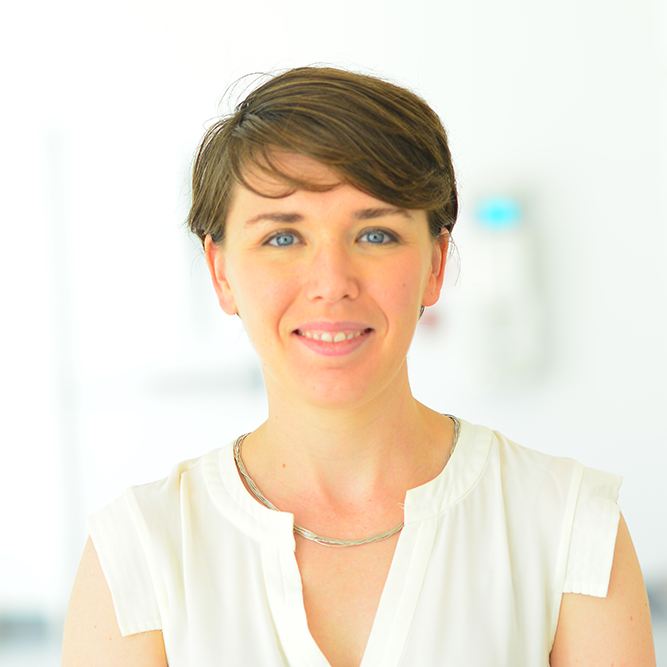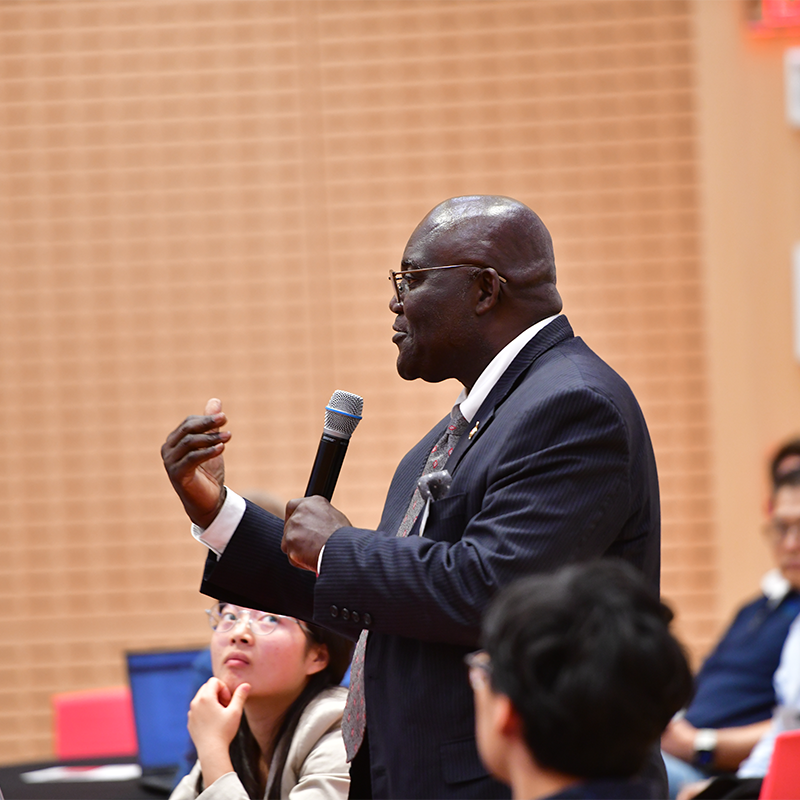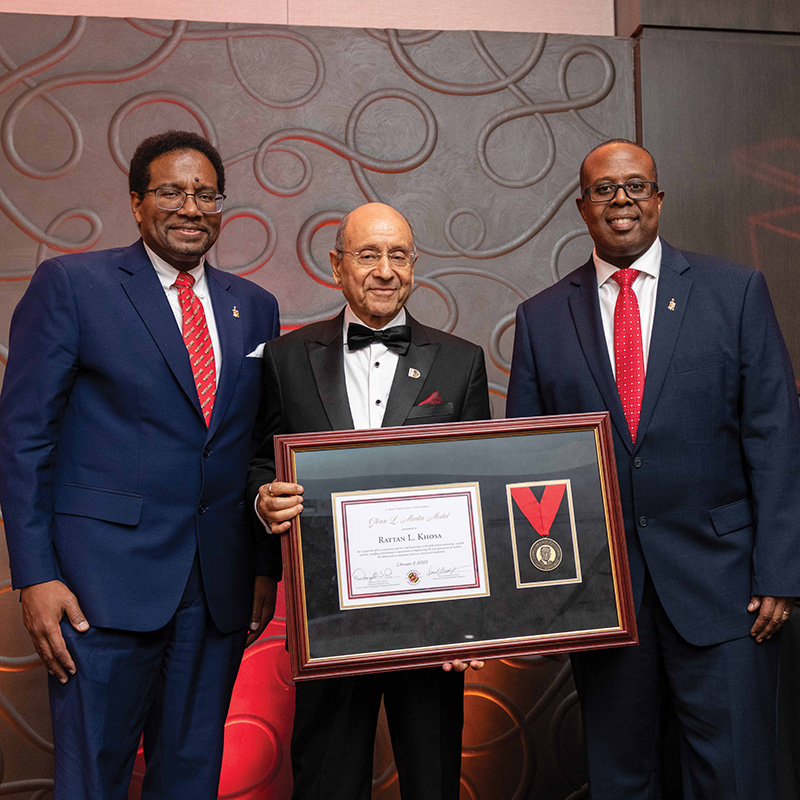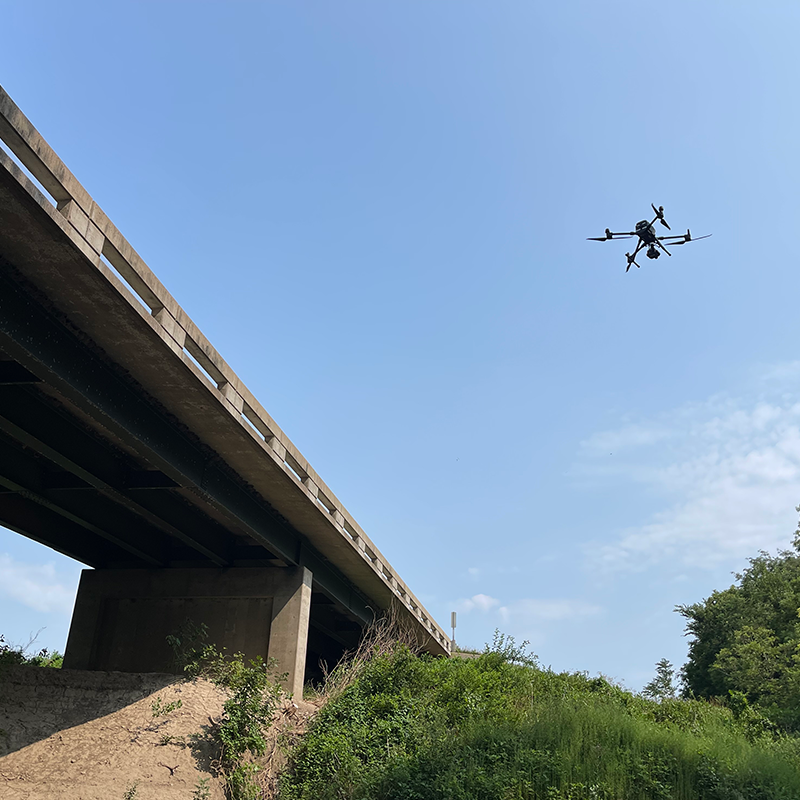News Story
Eun Co-Chairs KGS/Geotech-Institute Joint Workshop

From left: Sheng Dai, Associate Professor, Georgia Tech; Sonny Kim, Professor, University of Georgia; Jongwan Eun, Assistant Professor, University of Maryland (UMD); Bill Likos, Professor, University of Wisconsin-Madison; Jie Han, President of G-I and Professor, University of Kansas; Anand Puppala, Professor, Texas A&M University; Boo Nam, Professor, KyungHee University.
University of Maryland (UMD) Assistant Professor Jongwan Eun played a key role at the 2nd Korean Geotechnical Society (KGS) and ASCE Geo-Institute (G-I) Joint Workshop, held at Kyung Hee University in South Korea from August 9-10.
Eun, a faculty member in the Department of Civil and Environmental Engineering, served as co-chair and session moderator for the event, which was part of an ongoing collaboration between KGS and the G-I. It built off the momentum gained during an inaugural workshop held in Charlotte, North Carolina, in 2022. As with the previous workshop, the goal of this year’s events was to strengthen the relationship between these two leading geotechnical organizations and to address pressing geotechnical challenges facing both countries.
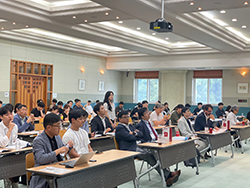 The event featured 12 in-depth seminars, fostering robust discussions among participants and presenters, particularly in the areas of urban geotechnical engineering and geohazards.
The event featured 12 in-depth seminars, fostering robust discussions among participants and presenters, particularly in the areas of urban geotechnical engineering and geohazards.
The workshop commenced with an opening address by Professor Younguk Kim, who is president of the KGS and a faculty member at Myongji University. This was followed by a welcoming speech from the G-I’s current president, Professor Jie Han. The workshop attracted over 90 in-person attendees and 35 online participants, setting a new standard for international collaboration in geotechnical engineering in Korea.
The seminar series was inaugurated by Professor Anand Puppala from Texas A&M University, who presented on “Remote Sensing Technologies for Civil Infrastructure Health Monitoring and Asset Management.” The event concluded with a presentation by Professor Boo Hyun Nam from Kyung Hee University on “Spatiotemporal Analysis of Karst Sinkholes Using Satellite Remote Sensing (PSInSAR).”
Notably, the workshop included around 30 young geotechnical and geoenvironmental students and engineers, with 10 female attendees. Below is a summary of the presentations:
-
Remote Sensing Technologies for Civil Infrastructure Health Monitoring and Asset Management
Anand J. Puppala, Texas A&M University
-
UAV-enabled Multi-Sensing for Surface and Subsurface Characterization Following Natural Disasters
Dimitrios Zekkos, University of California, Berkeley -
Biopolymer-Based Soil Treatment (BPSD Technology) for Strengthening Earthen Levee Structures
Ilhan Chang, Ajou University -
Phase-field Modeling of Geologic Fractures
Jinhyun Choo, KAIST -
Nondestructive Assessment of Cement-Stabilized Soil and Lightweight Cellular Concrete Backfill for Urban Construction
Jie Han, University of Kansas -
Ground Penetrating Radar for Early Detection of Construction Irregularities
Sung-Hee (Sonny) Kim, University of Georgia -
Seismic Response of Structures on Shallow and Deep Basements and Bentonite Buffer Materials for Engineered Barrier Systems
Yun Wook Choo, Kongju National University -
The Effect of Initial Static Shear Stress on Liquefaction Triggering in Coarse-Grained Materials
Jongchan Kim, Pukyong National University -
Bio-Inspired Drilling: Challenges and Opportunities
Sheng Dai, Georgia Tech -
Revised Soil Classification System (RSCS)
Junghee Park, Incheon National University -
Field Evaluation of Radon Flux at Uranium Mill Tailings Disposal Sites After 20 Years of Service
William J. Likos, University of Wisconsin-Madison -
Spatiotemporal Analysis of Karst Sinkholes Using Satellite Remote Sensing (PSInSAR)
Boo Hyun Nam, Kyung Hee University
To further disseminate the knowledge shared at the workshop, a special issue of the International Journal of GeoEngineering, published by KGS, is planned for release later this year. This event highlights the growing collaboration between the United States and Korea in advancing geotechnical engineering.
Published September 5, 2024



